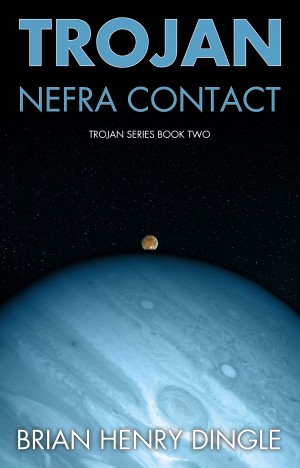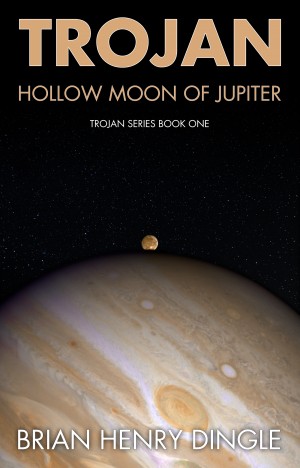Location: Canada
Member Since:
July 14, 2015
2 readers have added this author as a 'Favorite Author'.
Brian Henry
Publisher info
Dr. Dingle is an Internist and Hematologist, working in Medical Oncology at the London Health Science Program of Schulich School of Medicine and Dentistry, Western University, London, Ontario, Canada. He has practiced this specialized discipline of Medicine for over forty years. He is still engaged in clinical medicine, teaching of undergraduates and post-graduates, research and in the past, administration. His past administrative responsibilities have included nine years on the College of Physicians and Surgeons of Ontario, several years promoting and developing the Grand River Regional Cancer Centre in Kitchener, Ontario, and Chief of Oncology and Senior Medical Director of the Oncology Department at the London Health Sciences Centre.
Brian Dingle holds a third degree (Sandan) black belt in Shidokan karate, and a fourth degree (Yondan) in Chito-Ryu karate, and is one of the founding directors of the Grand River Karate which continues (alas, without him) to this day. His undergraduate degree was in Physics and Mathematics at University of Toronto, and he obtained a Masters degree in Pharmacology while completing his Medical Degree at the same university.
Dingle lives with his wife, Vikki, in London, Ontario, and has three children and two grandchildren.
Dr. Dingle is the author of two books in his Trojan Series, and has published one (posthumously) of his father-in-law's, Dr. Harold Warwick.
Brian Dingle holds a third degree (Sandan) black belt in Shidokan karate, and a fourth degree (Yondan) in Chito-Ryu karate, and is one of the founding directors of the Grand River Karate which continues (alas, without him) to this day. His undergraduate degree was in Physics and Mathematics at University of Toronto, and he obtained a Masters degree in Pharmacology while completing his Medical Degree at the same university.
Dingle lives with his wife, Vikki, in London, Ontario, and has three children and two grandchildren.
Dr. Dingle is the author of two books in his Trojan Series, and has published one (posthumously) of his father-in-law's, Dr. Harold Warwick.
Smashwords Interview
Where to find Brian Henry online
Website: http://facebook.com/brian.dingle.14
Facebook: Facebook profile
Blog: http://drbriandingle.wordpress.com
Facebook: Facebook profile
Blog: http://drbriandingle.wordpress.com
East of the Merrimack
by Harold Warwick
Price:
$4.99 USD.
Words: 81,580.
Language:
English.
Published: December 13, 2015
by
Brian Henry.
Categories:
Fiction » Historical » Canada
The year is 1689, and John Gyles, a young eleven year old boy of an English family farm near Pemaquid Harbor in New England, is captured by Indians (North American aboriginals) and remains with them in captivity for the next five years. The story is one of survival, danger, excitement, tenderness and love, on the background of accurate historical fact.
Books
TROJAN: Nefra Contact
by Brian Henry
Series: TROJAN.
Price:
$3.99 USD.
Words: 101,130.
Language:
English.
Published: September 13, 2015
.
Categories:
Fiction » Science fiction » Hard sci-fi
(3.00 from 1 review)
War-torn Earth turns its attention to the sudden appearance of a ‘moon’ around Jupiter. Two sets of heroes, one from Earth and one from the ‘alien’ planet Nefra meet on this distant outpost, presenting Earth with its First Contact, representing a struggle on both sides to stay alive.
Trojan: Hollow Moon of Jupiter
by Brian Henry
Series: TROJAN.
Price:
$3.99 USD.
Words: 168,430.
Language:
English.
Published: August 30, 2015
.
Categories:
Fiction » Science fiction » Hard sci-fi, Fiction » Mystery & detective » General
(3.50 from 2 reviews)
Trojan, a hollow Moon built by the Nefra as a beachhead to attack Earth, has been inhabited by half a million Earthsiders, to prevent just such a threat.
Suddenly street people in Trojan start dying. Local police take interest when Richard Fletcher, failed father, relapsed priest, drug addict, and brother of Trojan’s major drug lord, is in the weightless, world famous Ortho Burn unit
Brian Henry's tag cloud
Brian Henry's favorite authors on Smashwords
Smashwords book reviews by Brian Henry
-
Glory on Mars Colonization Book 1
on Nov. 22, 2015
Glory on Mars Kate Rauner https://www.smashwords.com/profile/view/katerauner http://www.amazon.com/Kate-Rauner/e/B00DMEEMWS/ref=sr_ntt_srch_lnk_1?qid=1448245074&sr=8-1 published by Smashwords ISBN: 9781310462115 This book is Science Fiction, probably best described as Hard Science Fiction, and contains a small section on Speculative Medicine The Story: The main story centers centers Emma, a scientist and robotics expert who is part os a staged colonization of Mars. Much of the book is a description of the problems involved in setting up a self-sufficient colony in terms of heat, power, shelter, transportation and food, as well as planning for population expansion. It is the hope that the colony will provide a stepping stone to the rest of the solar system, and space in general. Several sub-plots involve dangers faced by the colonists because of human criminal interference and natural disaster, as well as some minor relationship conflicts. Technical: The book is well constructed with very few technical problems, largely occasional typographical errors which were quite rare. There was nothing here to distract the reader. On rare occasion, attribution of dialog was ambiguous. Nevertheless, the dialog was realistic, often a difficult accomplishment for any author. There were some interesting internal links to media, poetry, explanations of material in the book that was not necessary to the flow of the book and so left ‘optional. Style. This is Hard Science Fiction, not Fantasy, and the author has taken pains to discuss various problems facing the colonists with reference to real science, planetology, atmospheric conditions. Nowhere did I find any magic or fantasy, but every unusual and interesting feature, and many are described, appears to be based in science. Ms. Rauner is a retired engineer with experience in America’s nuclear complex. She demonstrates authority in the science context of her writing. The description of problems in colony development is fascinating, although may cater to a certain segment of audience with a background and interest. It does not require extensive education in science, but it certainly requires interest. If the book falls down at all, it will be in the eyes of the beholder, that character and relationship development takes a back seat to the world ‘building,’ really world ‘description,’ because Ms. Rauner tries very hard to remain true to reality. And I missed the opportunity to name the cat ‘Glory’, but to my knowledge, the cat was never named. Speculative Medicine. https://drbriandingle.wordpress.com This, of course, is my interest, and one of the reasons for reviewing this book. There are references to the realistic risk of radiation damage because of lack of geomagnetic fields and atmosphere on Mars, particularly during solar flares. “Cancer wasn’t much of a problem on Earth anymore,” is a quote from one of her appendices and Emma relies on this knowledge, although never has to apply it during the story. Nanoparticles which grip each malignant cell individually (targeted therapy?), that help to discover single cells in the human body and irradiate them using radio frequency ablation (Kanzius effect) is not so far-fetched as you might think, given that current science is investigating detection of circulating cancer cells and single cell imaging, and bulk (although not single cell) radio frequency ablation is a well-established currently. Of course, we already have targeted therapy such as cell-lethal medications linked biochemically to monoclonal antibodies (magic bullets) which attack individual cells, so this too is not so far-fetched. I enjoyed this book very much. I was reminded often of Kim Stanley Robinson and his Mars series, which I mean as a compliment in the best possible way. I would give this book 4.6




